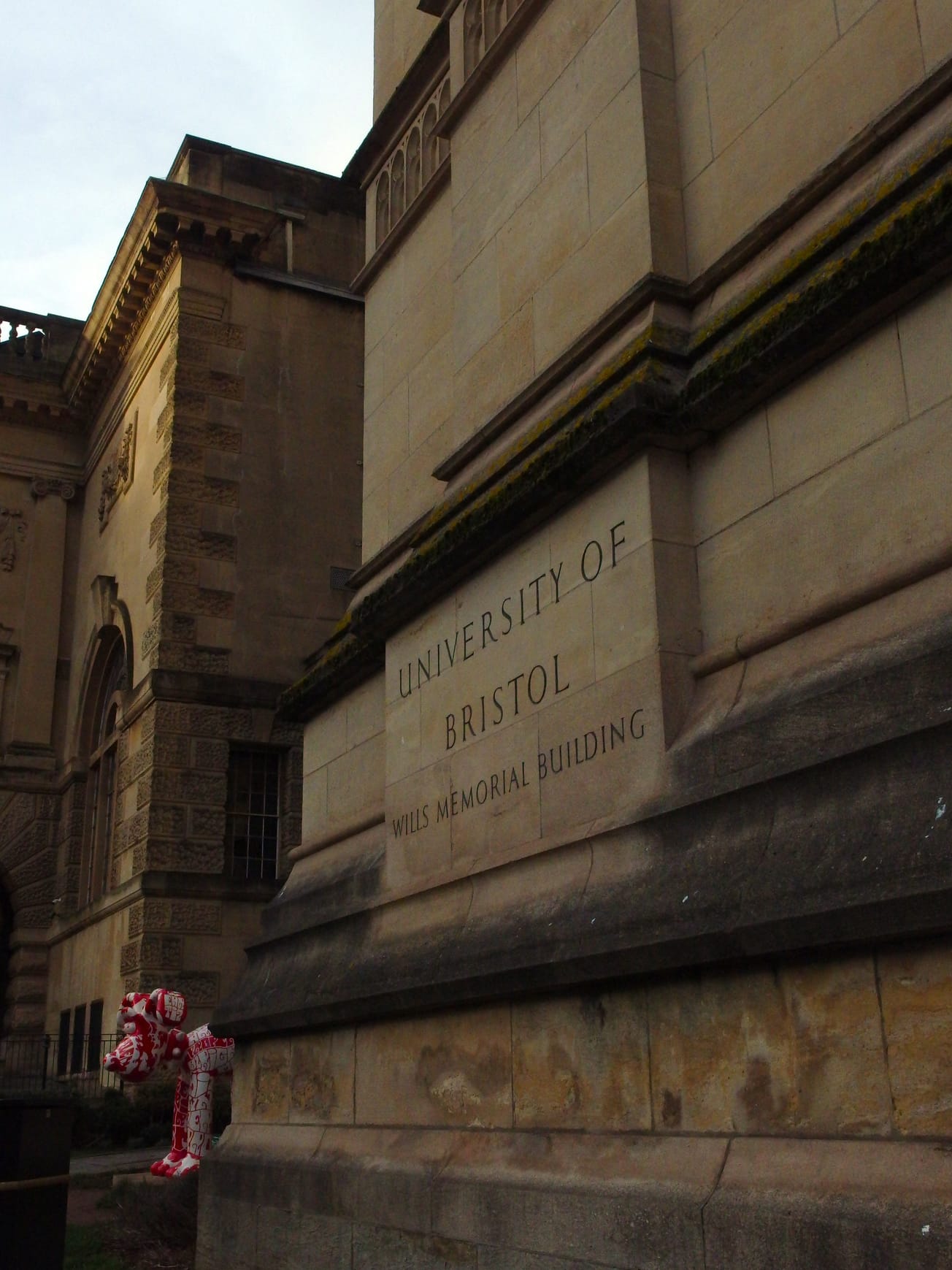By Milan Perera, Deputy Editor
On Wednesday 24 April, a group of animal rights activists gathered for a demonstration outside the Beacon House demanding the University of Bristol to end its use of the Forced Swim Test (FST) in scientific research.
The demonstration started around 10.30 am and was organised by People for the Ethical Treatment of Animals (PETA).
Today (April 24) is also an offer visit day at the University of Bristol which attracted passing crowds towards the protest. But for PETA it was World Day for Animals in Laboratories to express their position on FST.

A PETA activist was seen wearing a white laboratory coat, goggles, and gloves, posing as ‘Dr Killsalot’ – the ‘Head of Animal Torture’ – conducting a ‘botched experiment’ outside Queen’s Road entrance of the Beacon House.
The animal rights campaigners stood before a table draped with a banner reading, ‘Bristol Uni: End the Mad Science. Drop the Forced Swim Test.’ and containing three large water-filled cylinders with “rats” in them and smoky test tubes. This is the latest action in PETA’s campaign calling attention to, as they call it, ‘the absurdity of subjecting animals to the fear of near-drowning under the erroneous assumption it can reveal something about human mental health conditions.’

One of the activists, who wished to remain anonymous, said: ‘In the widely discredited forced swim test, experimenters induce panic in vulnerable small animals like rats and mice, who may have been dosed with a test substance, by putting them into inescapable cylinders of water, where they swim for fear of drowning. They attempt to climb the steep sides of the container and even dive underwater to look for an escape. Once the test is complete, experimenters kill the animals – either by gassing, inflicting blunt-force trauma to the head, inducing anaesthetic overdose, or breaking their necks – to study their brains.’
They continued: ‘The University of Bristol continues to conduct the forced swim test even though the Home Office recently announced its intent to eliminate it in the UK in the near future. This will be the first time a specific test on rodents has been banned in the UK, and the University of Bristol is one of the last institutions in the country to continue its use.’
Kate Werner, Senior Campaigns Manager at PETA said: ‘The University of Bristol is giving the green light to the torture of vulnerable rats and mice by allowing this mad science to continue. PETA is calling on experimenters to drop this cruel, archaic test and switch to superior, human-relevant methods.’

PETA staged a similar protest during the City Address last October which was attended by Professor Evelyn Welch, Vice Chancellor at the University of Bristol and Marvin Rees, the elected Mayor of Bristol.
The demonstrators left the premises around 11.30 am.
Regarding this demonstration, A University of Bristol spokesperson said: ‘We recognise there are differing views about the use of animals in research, including some concerns around whether it is ethical.
‘The University of Bristol has a successful track record of translating scientific discoveries into real-world advances. Wherever possible we rely on non-animal methods for example computer models, cells grown in the laboratory or human volunteers. When these methods are not suitable to address the scientific gaps, and therefore only when absolutely necessary, we use animals in research to improve our understanding of health and disease in both humans and animals. This includes cardiovascular and cancer research, diseases associated with infection and immunity and, in the case of forced swimming, advances in the understanding of stress-related disorders.
‘We are committed to a culture of openness and transparency regarding the research carried out here at Bristol, ensuring the animals are treated with compassion and respect. We keep up to date with the latest thinking on all aspects of research using animals (including advances in welfare) and have robust and thorough ethical review processes in place for every project.’
Featured image: PETA
Do you think the university should stop its use of the Forced Swim Test?








